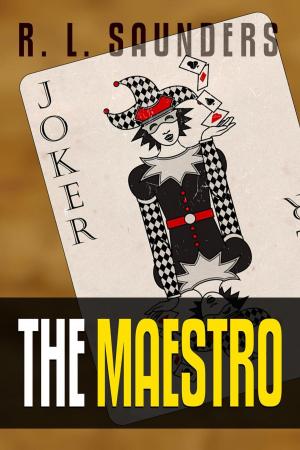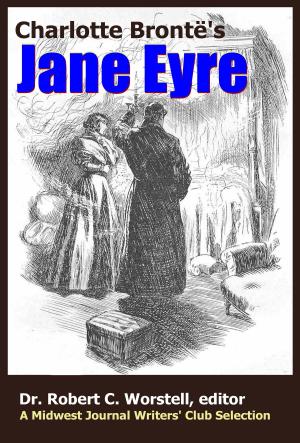Victor Hugo's Les Misérables
A Midwest Journal Writers Club Selection
Nonfiction, Entertainment, Theatre, Broadway & Musical Revue, Fiction & Literature, Drama, Musicals, Historical| Author: | Midwest Journal Writers' Club, Dr. Robert C. Worstell, Victor Hugo | ISBN: | 9781304233530 |
| Publisher: | Midwest Journal Press | Publication: | July 15, 2013 |
| Imprint: | Language: | English |
| Author: | Midwest Journal Writers' Club, Dr. Robert C. Worstell, Victor Hugo |
| ISBN: | 9781304233530 |
| Publisher: | Midwest Journal Press |
| Publication: | July 15, 2013 |
| Imprint: | |
| Language: | English |
About this book:
Les Misérables is a French historical novel by Victor Hugo, first published in 1862, that is considered one of the greatest novels of the 19th century. In the English-speaking world, the novel is usually referred to by its original French title, which has not been successfully translated from French (attempts ranging from The Miserable, The Wretched, The Miserable Ones, The Poor Ones, The Wretched Poor and The Victims, to The Dispossessed).
Beginning in 1815 and culminating in the 1832 June Rebellion in Paris, the novel follows the lives and interactions of several characters, focusing on the struggles of ex-convict Jean Valjean and his experience of redemption.
The story begins in 1815 in Digne, as the peasant Jean Valjean, just released from 19 years' imprisonment in the galleys—five for stealing bread for his starving sister and her family and fourteen more for numerous escape attempts—is turned away by innkeepers because his yellow passport marks him as a former convict. He sleeps on the street, angry and bitter.
Digne's benevolent Bishop Myriel gives him shelter. At night, Valjean runs off with Myriel's silverware. When the police capture Valjean, Myriel pretends that he has given the silverware to Valjean and presses him to take two silver candlesticks as well, as if he had forgotten to take them. The police accept his explanation and leave. Myriel tells Valjean that his life has been spared for God, that he should use the silver candlesticks to make an honest man of himself.
Valjean broods over Myriel's words. When opportunity presents itself, purely out of habit, he steals a 40-sous coin from 12-year-old Petit Gervais and chases the boy away. He quickly repents and searches the city in panic for Gervais. At the same time, his theft is reported to the authorities. Valjean hides as they search for him, because if apprehended he will be returned to the galleys for life as a repeat offender...
(source: Wikipedia)
About the author:
Victor Marie Hugo (26 February 1802 – 22 May 1885) was a French poet, novelist, and dramatist of the Romantic movement. He is considered one of the greatest and best known French writers. In France, Hugo's literary fame comes first from his poetry but also rests upon his novels and his dramatic achievements. Among many volumes of poetry, Les Contemplations and La Légende des siècles stand particularly high in critical esteem. Outside France, his best-known works are the novels Les Misérables, 1862, and Notre-Dame de Paris, 1831 (known in English as The Hunchback of Notre-Dame).
(source: Wikipedia)
About the Midwest Journal Writers' Club:
This was created by popular request to enable any beginning or established author to improve their skills by studying quality editions of classic bestselling fiction. Join at http://midwestjournalpress.com
About this book:
Les Misérables is a French historical novel by Victor Hugo, first published in 1862, that is considered one of the greatest novels of the 19th century. In the English-speaking world, the novel is usually referred to by its original French title, which has not been successfully translated from French (attempts ranging from The Miserable, The Wretched, The Miserable Ones, The Poor Ones, The Wretched Poor and The Victims, to The Dispossessed).
Beginning in 1815 and culminating in the 1832 June Rebellion in Paris, the novel follows the lives and interactions of several characters, focusing on the struggles of ex-convict Jean Valjean and his experience of redemption.
The story begins in 1815 in Digne, as the peasant Jean Valjean, just released from 19 years' imprisonment in the galleys—five for stealing bread for his starving sister and her family and fourteen more for numerous escape attempts—is turned away by innkeepers because his yellow passport marks him as a former convict. He sleeps on the street, angry and bitter.
Digne's benevolent Bishop Myriel gives him shelter. At night, Valjean runs off with Myriel's silverware. When the police capture Valjean, Myriel pretends that he has given the silverware to Valjean and presses him to take two silver candlesticks as well, as if he had forgotten to take them. The police accept his explanation and leave. Myriel tells Valjean that his life has been spared for God, that he should use the silver candlesticks to make an honest man of himself.
Valjean broods over Myriel's words. When opportunity presents itself, purely out of habit, he steals a 40-sous coin from 12-year-old Petit Gervais and chases the boy away. He quickly repents and searches the city in panic for Gervais. At the same time, his theft is reported to the authorities. Valjean hides as they search for him, because if apprehended he will be returned to the galleys for life as a repeat offender...
(source: Wikipedia)
About the author:
Victor Marie Hugo (26 February 1802 – 22 May 1885) was a French poet, novelist, and dramatist of the Romantic movement. He is considered one of the greatest and best known French writers. In France, Hugo's literary fame comes first from his poetry but also rests upon his novels and his dramatic achievements. Among many volumes of poetry, Les Contemplations and La Légende des siècles stand particularly high in critical esteem. Outside France, his best-known works are the novels Les Misérables, 1862, and Notre-Dame de Paris, 1831 (known in English as The Hunchback of Notre-Dame).
(source: Wikipedia)
About the Midwest Journal Writers' Club:
This was created by popular request to enable any beginning or established author to improve their skills by studying quality editions of classic bestselling fiction. Join at http://midwestjournalpress.com















